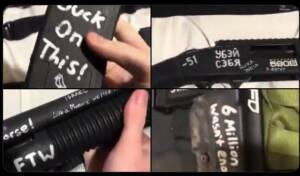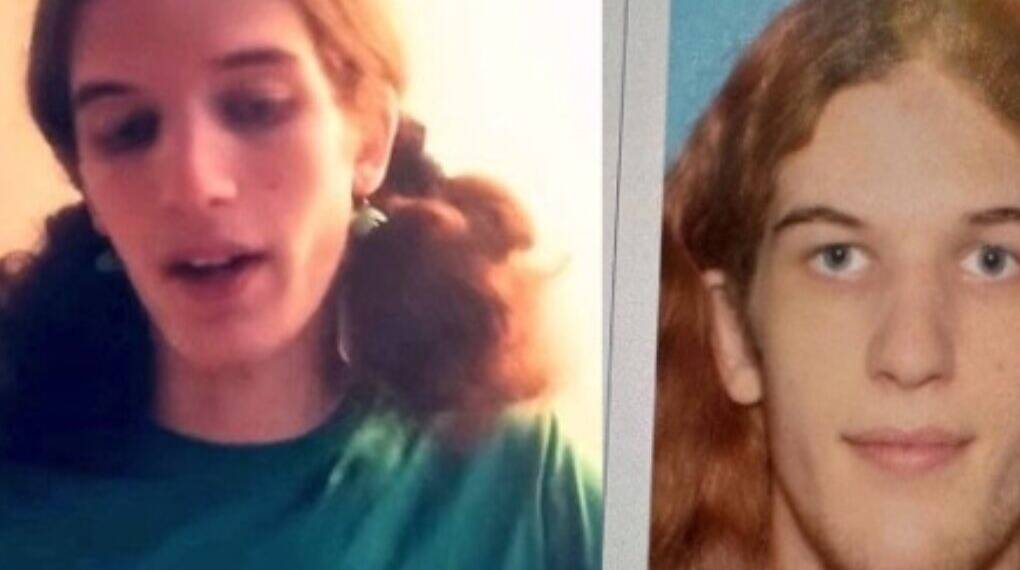On August 26th, Minneapolis was shaken by a horrific act of violence when a gunman opened fire inside the Annunciation Catholic School’s church during morning Mass. Two children were killed and seventeen others wounded before the attacker, 23-year-old Robin Westman, died by suicide.
The brutality of the act has left the city reeling — but even more disturbing are the chilling messages discovered on Westman’s weapons, including phrases like “Kill Trump,” “Israel must fall,” “Mashallah,” “Nuke India” and the name of Mohamed Atta, the Egyptian ringleader of the 9/11 hijackers.
The attack is now being investigated as an act of domestic terrorism and a hate crime targeting Catholics. Here is what is known so far.
The Attack
The shooting unfolded during the first week of the school year, as children and parishioners gathered for Mass at the south Minneapolis church. Witnesses described gunfire ripping through stained-glass windows as Westman, armed with a rifle, shotgun, and pistol, opened fire into the pews.
According to police chief Brian O’Hara, two children, ages eight and ten, were killed instantly, while fourteen other students and three elderly worshippers were injured.
The assault ended when Westman turned the gun on themselves in the school parking lot. Survivors recalled scenes of chaos, with one young student saying he was saved when a friend shielded him from bullets.
Who Was Robin Westman?
Authorities have identified the shooter as Robin Westman, a transperson, born Robert Westman. In 2020, Westman legally changed their name and identified as female. Officials confirmed Westman had no prior criminal history and purchased all three firearms legally.
Westman grew up in nearby Richfield; their mother worked at Annunciation School, and their father lived less than a mile from the church. Investigators believe Westman acted alone, describing the assault as a “lone wolf” attack carried out by a deeply radicalised individual.
The Manifesto and Weapons
In the aftermath, investigators uncovered disturbing materials: a YouTube channel, handwritten journals, and videos showing Westman’s weapons.
On rifles and ammunition magazines, Westman had scrawled phrases including:
“For the children”
“Kill Donald Trump”
“Israel must fall”
“Nuke India”
“Mashallah”
“Where is your God?”

One firearm bore the name Mohamed Atta, leader of the 9/11 hijackers. Others referenced Anders Breivik, the Norwegian extremist who killed 77 in 2011, and Robert Bowers, the gunman who murdered 11 worshippers at a Pittsburgh synagogue in 2018.
The journals revealed suicidal thoughts, depression, and a disturbing fascination with mass killings. One entry ended simply with: “The end. I’m so sorry. – Robin ♥.”
Authorities described this as evidence of a toxic mix of influences: radical Islam, antisemitism, anti-Trump rhetoric, and admiration for notorious mass shooters.
Political and Public Reactions
The massacre triggered strong responses at home and abroad.
President Donald Trump condemned the attack and ordered US flags lowered to half-staff. Pope Leo XIV said he was “profoundly saddened,” while Homeland Security Secretary Kristi Noem described Westman as a “deranged monster.”
Minneapolis Mayor Jacob Frey cautioned against exploiting the attack to stigmatise transgender people, stressing that the wider issue was America’s proliferation of guns. “Anyone using this tragedy to demonize our trans community or other groups has lost their sense of humanity,” he said.
Still, online commentary has been divisive. Some commentators highlighted Westman’s use of Islamic phrases like “Mashallah” and pro-Palestinian references, noting Minneapolis’s large Muslim community and its representation by Congresswoman Ilhan Omar. Activist Laura Loomer claimed, “America doesn’t have a gun problem; it has a Muslim problem.”
The polarized reactions reflect how quickly mass shootings in the U.S. become political flashpoints.
The Bigger Picture
This shooting marks the 286th mass shooting in the United States in 2025 alone. Yet it stands apart because of the eclectic mix of ideologies in Westman’s writings:
Admiration for school shooters like Adam Lanza.
References to terrorists such as Mohamed Atta.
Hatred directed toward Jews, Catholics, and Donald Trump.
Calls for violence against nations — most chillingly, the phrase “Nuke India.”
Experts warn this illustrates how extremist ideologies online can overlap and fuse, creating dangerous new forms of radicalisation in unstable individuals.
The Minneapolis school shooting has left a community shattered and a nation once again confronting its darkest realities. Two children are dead, seventeen others injured, and countless families scarred forever.
But beyond grief, the attack highlights an unsettling trend: the blurring of extremist influences — from far-right white supremacists to radical Islamist slogans — all absorbed into one shooter’s worldview.
The tragedy raises difficult questions: How can society prevent radicalisation? How do individuals with no criminal record so easily access deadly weapons? And most urgently, how can America break the cycle of mass shootings that now feels relentless?
Until those questions find answers, the memory of Minneapolis will serve as yet another reminder that when hate is carved into bullets, it is always the innocent who bleed.








